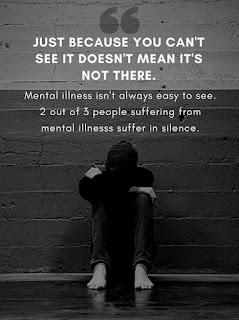Environmental Factors in Mental Illness: Stress, Trauma, and Social Determinants
Mental health disorders are a significant public health concern worldwide, affecting individuals of all ages and backgrounds. While genetic and biological factors play a crucial role in the development of mental illnesses, it is increasingly recognized that environmental factors also significantly impact mental health. Among these environmental factors, stress, trauma, and social determinants have been identified as key contributors to the onset and exacerbation of mental illness. In this article, we will explore the intricate relationship between these environmental factors and mental health, focusing on stress, trauma, and social determinants.
Stress and Mental Health:
Stress is a common experience in daily life and can result from various sources, such as work pressure, relationship problems, financial difficulties, or major life events. While stress in small doses can be motivating and adaptive, chronic or excessive stress can have detrimental effects on mental health. Prolonged exposure to stress can disrupt the body's stress response system, leading to an imbalance in neurotransmitters and hormones that regulate mood and emotions.
Chronic stress is associated with an increased risk of developing mental health disorders such as anxiety, depression, and post-traumatic stress disorder (PTSD). Individuals who experience high levels of stress are more likely to exhibit symptoms of psychological distress, including irritability, fatigue, insomnia, and difficulty concentrating. Moreover, chronic stress can exacerbate existing mental health conditions and impede recovery from mental illness.
Trauma and Mental Health:
Trauma refers to a distressing or disturbing event that overwhelms an individual's ability to cope effectively. Traumatic experiences can vary widely and may include physical or sexual abuse, natural disasters, accidents, combat exposure, or witnessing violence. Trauma can have profound and lasting effects on mental health, often leading to the development of post-traumatic stress disorder (PTSD) or other trauma-related disorders.
Individuals who have experienced trauma may exhibit a range of symptoms, including intrusive memories, flashbacks, hyper vigilance, emotional numbness, and avoidance of trauma-related stimuli. Trauma survivors are at increased risk of developing mental health disorders such as PTSD, depression, anxiety, and substance abuse. The impact of trauma on mental health can be long-lasting and may require specialized treatment and support to facilitate healing and recovery.
Social Determinants of Mental Health:
Social determinants of health are the conditions in which people are born, grow, live, work, and age that influence their health outcomes. Social determinants play a critical role in shaping an individual's mental health and well-being. Factors such as socioeconomic status, education, employment, housing, access to healthcare, social support networks, and community resources can significantly impact mental health outcomes.
Individuals from disadvantaged backgrounds or marginalized communities are more likely to experience higher levels of stress, trauma, and social isolation, which can contribute to the development of mental health disorders. Social determinants also influence access to mental health services and treatment, leading to disparities in mental health outcomes among different populations.
Addressing Environmental Factors in Mental Health:
Recognizing the impact of environmental factors on mental health is essential for effective prevention and treatment strategies. Healthcare providers, policymakers, and community organizations play a crucial role in addressing the environmental factors that contribute to mental illness. Here are some key strategies for addressing environmental factors in mental health:
1. Education and awareness: Increasing public awareness about the impact of stress, trauma, and social determinants on mental health can help reduce stigma and promote early intervention. Education programs that focus on stress management, trauma-informed care, and the importance of social support can empower individuals to take proactive steps to protect their mental well-being.
2. Trauma-informed care: Healthcare providers and mental health professionals should adopt trauma-informed approaches in their practice to support individuals who have experienced trauma. This involves creating safe and supportive environments, acknowledging the impact of trauma on mental health, and providing specialized care that addresses the unique needs of trauma survivors.
3. Social support networks: Building strong social support networks can help individuals cope with stress, trauma, and other environmental challenges that impact mental health. Encouraging social connections, fostering community engagement, and providing access to peer support groups can enhance resilience and promote mental well-being.
4. Addressing social determinants: Addressing social determinants of health such as poverty, unemployment, inadequate housing, and lack of access to healthcare is essential for improving mental health outcomes. Policymakers should prioritize initiatives that reduce disparities in social determinants and promote equitable access to resources and opportunities that support mental well-being.
5. Integrated care models: Implementing integrated care models that address both physical and mental health needs can improve outcomes for individuals with mental illness. Collaborative care approaches that involve coordination between primary care providers, mental health specialists, social workers, and community organizations can enhance comprehensive care delivery and support holistic well-being.
6. Advocacy and policy change: Advocating for policies that prioritize mental health, promote mental health literacy, and address social determinants of health is crucial for creating a supportive environment for individuals with mental illness. Policymakers should work to implement policies that support mental health promotion, early intervention, and access to quality mental health services for all individuals.
Conclusion:
Stress, trauma, and social determinants are significant environmental factors that influence mental health outcomes and contribute to the development of mental illness. Understanding the complex interplay between these environmental factors and mental health is essential for developing holistic approaches to prevention, early intervention, and treatment of mental health disorders.
By addressing stress, trauma, and social determinants through education, trauma-informed care, social support networks, policy change, and integrated care models, we can create a more supportive and inclusive environment that promotes mental well-being for all individuals. It is crucial for healthcare providers, policymakers, community organizations, and individuals to collaborate and work together to address environmental factors in mental health and foster a society where mental well-being is prioritized and supported.

Comments
Post a Comment